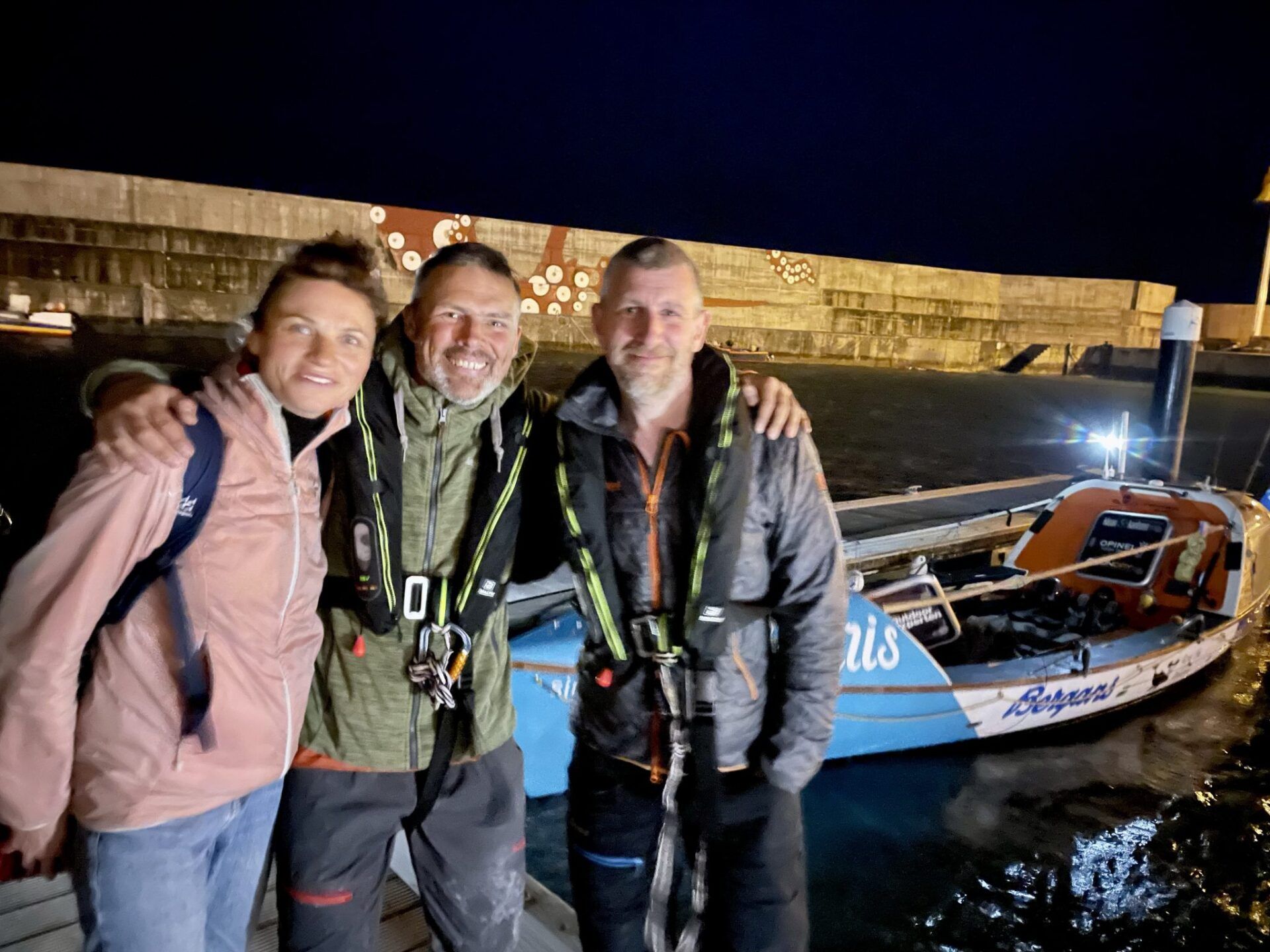Epilogue – Atlantic row aborted after dangerous and unusual weather conditions

Sören and Måns set out to row the Atlantic ocean from Lagos (Portugal) to Antigua (West Indies) on the 28th of December after having to wait over two weeks for weather conditions to stabilize. When they were just one day from reaching their intermediate destination of Tenerife in the Canary Islands, the wind changed drastically and started pushing them northwest out into the open Northern Atlantic, far away from the needed trade winds towards the Caribbean.
They struggled through difficult wind and waves and finally managed to land on Madeira. By then they were delayed over a month and with all margins of time, budget and resources used up. Waiting for manageable conditions to continue south and towards Antigua, the risk of going into the hurricane season would be unacceptably high. The portuguese trade winds seem to have changed into a much less reliable behaviour, it is unbelievable how a storm from the Atlantic could reach so far south and pull us all the way up to Madeira. Facing these circumstances we have no choice but to terminate the project, and declare Madeira the final destination.
Our involvement in life in the oceans remains unchanged, and we hope that we can still create enough attention for the Baltic harbour porpoise to help save them from extinction. We gave it our best shot, however we are humble towards the immense forces of nature. It has been an extraordinary experience, very different from what we expected, challenging, emotional and extremely tough. The Atlantic will still be there…
”The Baltic Harbour Porpoise is the Baltic’s own whale, but it is urgently close to extinction and red listed with only a few hundred individuals left” says Sören Kjellkvist.
”Political decisions and specific changes need to happen soon, this should have been done a long time ago. Sweden’s lack of action has been criticized by the EU commission” says Måns Kämpe.
Ida Carlén, expert at Coalition Clean Baltic, adds: ”We work on demanding the changes required to allow the Baltic Harbour Porpoise to survive and stabilize, and the collaboration with Måns and Sören gives us a chance to bring this issue to a broader audience. A lot of people are not even aware that there is a species of whale in the Baltic, and that it is so close to extinction.”
NOTES
- Read all about the adventure here or in their blog: https://sorenkjellkvist.se/ro-over-atlanten/
- For more information about the Baltic Harbour Porpoise

